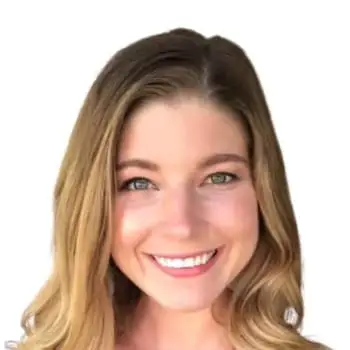In Colorado, Xanax and other drugs like it are being misused. When purchased illegally, there is also a potential of Xanax being laced with other drugs such as fentanyl, which presents another set of dangerous risks. For the first time, drug overdose deaths surpassed 100,000 in a 12-month period, and this includes prescription medications. The dangers of medication misuse are clear, and it’s crucial to understand the risk factors associated with prescription medications such as Xanax.
Xanax is part of a class of medications called benzodiazepines, or benzos. Because these drugs calm brain activity to promote feelings of relaxation, they are prescribed to treat anxiety and panic disorders. Despite their benefits, benzodiazepines have several risks—even when used as prescribed. Xanax is the brand name of the generic drug alprazolam, and it is categorized as a central nervous system depressant. Xanax is classified as a Schedule IV controlled substance in the U.S., meaning it has a “low potential of abuse”. Xanax can be prescribed for agoraphobia, anxiety disorders and panic attacks. There are other potential Xanax uses being researched, like treating nausea and vomiting that occurs during cancer treatment. Xanax and other benzos are among the most widely prescribed class of medications in the U.S., making up 25% percent of controlled substance prescriptions in 2016 in Colorado. The availability of these drugs can contribute to misuse.
How Does Xanax Work?
Xanax provides a calming effect, and it can also reduce tension and irritability. At higher doses, however, it can create feelings of euphoria. Since Xanax is a central nervous system depressant, it slows the brain by increasing GABA activity. Xanax will usually reach peak effectiveness in 1–2 hours. People who choose to misuse Xanax by crushing and snorting it could experience concentrated effects in a shorter time. This method of consuming Xanax could result in an overdose.
Why Is Xanax Addictive?
Xanax triggers the brain to release a large amount of dopamine, a neurotransmitter that’s responsible for the control of pleasure and reward. That dopamine surge can trigger a feedback loop, where the brain craves Xanax in order to keep feeling reward and pleasure. Once this cycle has begun, your use of Xanax is considered out of your control. Approximately 19.1% percent of people in the U.S. are believed to suffer from an anxiety disorder, and they may need Xanax to function normally.
This Season, Give Yourself the Gift of a Fresh Start.
Whether you are struggling with addiction, mental health or both, our expert team is here to guide you every step of the way. Don’t wait— reach out today to take the first step toward taking control of your life.
Psychological Addiction vs. Physical Dependence
Physical and psychological reactions to Xanax can differ depending on the person. There are two ways in which someone may experience a Xanax use disorder.
- Psychological addiction: Addiction is classified as a recurring but treatable illness. The main goal of addiction is to satisfy the brain’s reward center by continuing to use a substance. In this case, a patient does not feel in control of their ability to stop using or misusing a substance.
- Physical dependence: When the body is physically dependent on a substance, a specific dosage must be taken for the body to function normally and avoid Xanax withdrawal symptoms.
How Does Xanax Addiction Happen?
The most common factor that influences whether or not someone becomes addicted to Xanax is the way it is being used. This includes:
- Long-term use beyond four weeks
- Higher doses than prescribed
- Misuse of barbiturates or alcohol alongside Xanax
- Suffering from long-term anxiety or depression
- Accessing the drug outside of the prescription
Factors that Impact Addiction
There are environmental, psychological and biological factors that impact addiction:
- Family history of substance misuse
- History of recurrent misuse with other substances such as alcohol
- High-risk behaviors such as gambling
- Socioeconomic status
- Education level
- Undiagnosed or untreated mental health conditions
Xanax Interactions
Xanax misuse often coincides with other substance use. This risk increases as certain substances, such as opioids, are used with Xanax. An estimated 80% of Xanax abuse occurs with another drug. Benzodiazepines can be used to enhance the pleasurable effects of opioids or to help reduce withdrawal symptoms that occur when stopping other drugs.
Is Xanax Addictive in Low Doses?
Doctors in Colorado and nationwide are receiving updated guidelines to prescribe Xanax in a way that prevents addiction and other negative outcomes. Typically, a patient will begin with a relatively low dose of Xanax to see how it works. The risk of addiction is somewhat lessened with a lower dose, but there’s no definitive way to determine if you’ll become addicted. Xanax addiction is a serious issue in Colorado, and there are resources for people who live in Boulder, Denver, Colorado Springs and statewide to stop the cycle of addiction.
Signs of Xanax Abuse & Addiction
There are telltale signs to look out for if you suspect that a loved one is living with a Xanax use disorder. The inability to reduce doses or stop using Xanax, feeling unhinged without it or needing higher doses to feel the same relief can all indicate that someone may be misusing Xanax. Other, more obvious, signs of a Xanax abuse disorder include stealing from friends and family, spending more time trying to get Xanax, and more.
Xanax Addiction Treatment Options
There are several types of settings that can provide Xanax addiction treatment. Treatment should begin with detoxification before continuing onto psychological therapy, group therapy and other programs to ensure long-term recovery and prevent the possibility of relapse. If you’re local to Colorado or wish to relocate to a serene environment to begin your recovery journey, contact The Recovery Village at Palmer Lake to speak with one of our skilled specialists.









